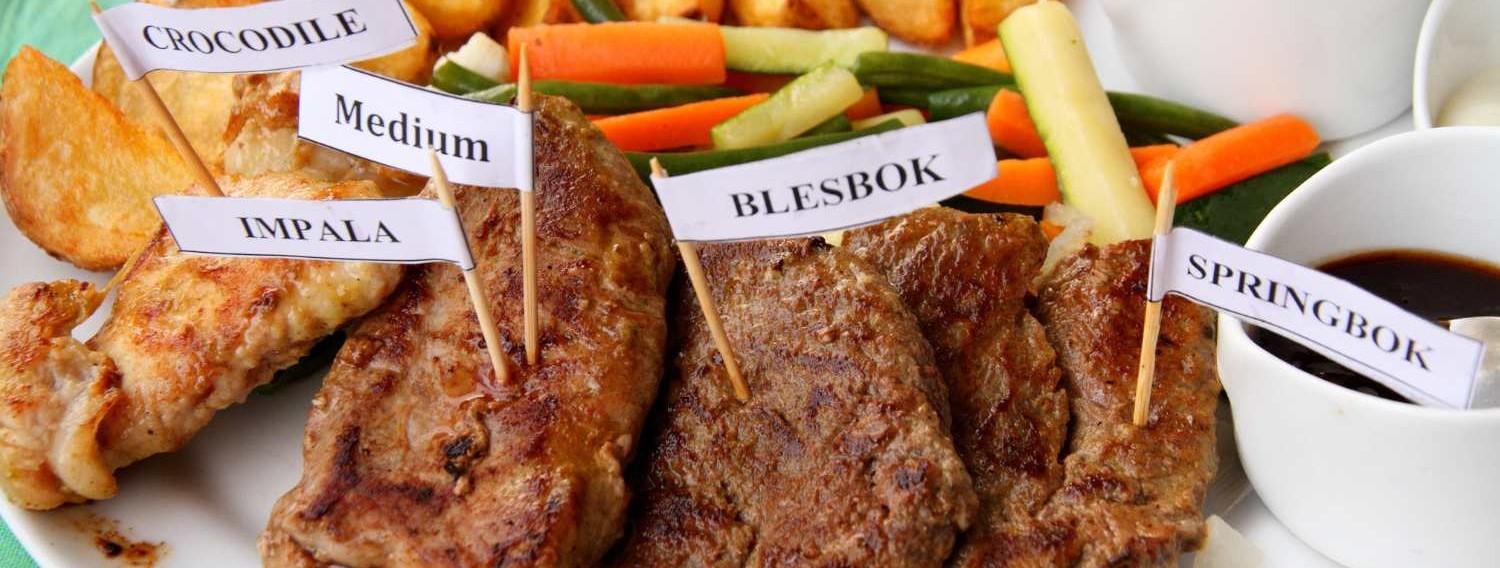
From poachers to providers: Can Africa's wild meat market save wildlife?
Have you ever considered how wild meat could be more than just a cultural staple but also a key player in sustainable development in Africa? Our recent study (Wiseman Ndlovu, Sungeni Karonga, and Francis Vorhies) titled "Wild Meat Value Chain Integration Systems: Opportunities for Value Chain Formalisation and Scaling in Africa" sheds light on this intriguing topic.
While rural and poor communities are the largest recipients of illegal wild meat, they are structurally and largely excluded from the legal game meat value chains, the study reveals. Both Illegal and legal wild meat value chain systems are either fully, partially, or independently integrated – each presenting a unique opportunity for scaling up these businesses. Moreso, developing institutional governance that delivers well-managed and sustainable wild meat value chains
Here's the scoop:
Three Integration Systems: The research identifies three ways wild meat value chains are organised - fully integrated, where one entity controls everything from hunting to selling; partially integrated, involving some level of shared control; and independent, where each stage of the chain is managed by different parties. Each system offers unique opportunities for formalisation and scaling.
Challenges and Opportunities: Illegal hunting largely caters to rural and low-income consumers who are currently excluded from legal meat markets. Formalising these chains could reduce illegal activities, support livelihoods, and protect wildlife. Imagine setting up more local abattoirs or engaging community hunters as 'artisanal hunters' to supply legal meat safely.
Potential for Growth: With the right policies and infrastructure, the wild meat sector could supply local markets and tap into international demand for game meat. This could lead to significant economic benefits while promoting sustainable practices.
Sustainability at Heart: The transition to formal chains involves creating transparent, traceable systems that ensure meat is sourced sustainably, reducing the risk of zoonotic diseases and overhunting. This requires a blend of community engagement, clear regulations, and market incentives.
The takeaway?
There's an opportunity here to transform the wild meat sector into sustainable businesses that create jobs, provide food, and protect biodiversity. By integrating local communities into legal frameworks, improving infrastructure, and fostering process and product innovation in the value chain, we can help ensure that this resource continues to nourish and support African societies without compromising our wildlife.
We can support this transition – through policy advocacy, investment, or simply spreading awareness.
Ndlovu, W. 2025, February 6. From poachers to providers: Can Africa's wild meat market save wildlife? African Wildlife Economy Institute. [Web log post]. Available: https://www0.sun.ac.za/awei/articles/poachers-providers-can-africas-wild-meat-market-save-wildlife
We support the free flow of information. Please share:
More content
-

From poachers to providers: Can Africa's wild meat market save wildlife?
Dr Wiseman NdlovuHave you ever considered how wild meat could be more than just a cultural staple but also a…
Articles -

As a fellow of the African Wildlife Economy Institute (AWEI), I am excited to attend the upcoming 3rd…
Articles -

A theory of change to improve conservation outcomes through CITES
Dr Michael 't Sas-Rolfes…Here we articulate the implied theory of change (ToC) underpinning the design and operation of CITES (Convention on...
2025Research -

Wild Meat Value Chain Integration Systems: Opportunities for Value Chain Formalisation and Scaling in Africa
Dr Wiseman Ndlovu…Establishing a legal, safe and sustainable wild meat sector promises to potentially reduce demand for illegally sourced meat...
2025Research -

AWEI's 2024 Wildlife Economy Dialogue Series
Ms Emily TaylorRediscover 2024: A year of insight and inspiration
In 2024, AWEI proudly hosted three ground-breaking dialogue series in…
Articles -

Evaluating key evidence and formulating regulatory alternatives regarding the UK's Hunting Trophies (Import Prohibition) Bill
Dr Michael 't Sas-Rolfes…Public policy addressing biodiversity loss is most likely to be effective when it is informed by appropriate evidence...
2024Research -

The return of the UK's ill-conceived bill to ban hunting trophy imports
Prof Francis Vorhies…A recent report and poll reveal serious flaws in the UK government’s continued push to ban the importation…
Articles -

India’s Wildlife Economy: Balancing Conservation and Sustainable Use
Mathen ‘Rajeev’ MathewThe concept of a wildlife economy through the sustainable use of wildlife is increasingly recognised as a means…
Articles -

Leveraging free trade to boost Africa’s wildlife economies through wild-harvested products
Dr Wiseman NdlovuThe intra-Africa trade of wild products presents a unique intersection of economic opportunity and environmental conservation. With the...
2024Research
Get updates by email
Through impactful research, stakeholder engagement, and professional development, AWEI is supporting the wildlife economy across Africa. Please subscribe for occasional updates on our work and forthcoming events.
Sign up for a quarterly dose of AWEI insights
In a complex and changing world, AWEI generates strategic ideas, conducts independent analysis on wildlife economies, and collaborates with global scholar-practitioners to provide training and expertise for biodiversity conservation, climate resilience, and inclusive economic opportunities in Africa.

